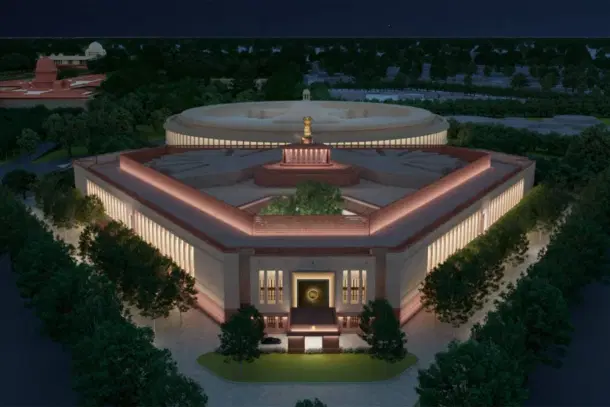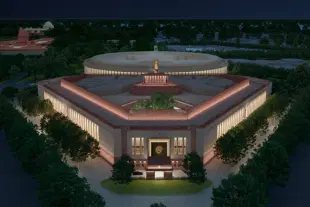News Brief
Parliamentary Committee Urges Caution On Rs 20,000 Crore Deep Tech Loan Amid Concerns Of Fund Misallocation And Security Risks
Arjun Brij
Mar 26, 2025, 03:40 PM | Updated 03:40 PM IST
Save & read from anywhere!
Bookmark stories for easy access on any device or the Swarajya app.


A Parliamentary Standing Committee has raised concerns over the Government’s Rs 20,000 crore allocation as a 50 year interest-free loan for deep tech sectors, warning of potential misallocation of funds and disproportionate private sector benefits at the Government’s expense, reported Indian Express.
While acknowledging the government's bold initiatives to support cutting-edge research, the Standing Committee on Science and Technology, Environment, Forests and Climate Change highlighted risks related to national security, investment returns, and the ability of fund managers to select the right projects.
The report stated, “… such a substantial allocation of funds could have yielded a significant impact if directed towards government institutions,” and urged the government to consider these concerns while formulating the framework and guidelines for implementation.
Finance Minister Nirmala Sitharaman, in her Budget speech in February, had announced the fund to boost private sector-driven research in deep tech, which includes transformative and disruptive technologies with potential applications in defence and industry.
The committee also pointed to underutilisation of funds in the Department of Scientific and Industrial Research, noting that over half of its budget remained unused as the financial year neared its end.
The department revealed that 62 per cent of its allocation went towards pensions and salaries, 7 per cent to capacity-building programmes, and only 31 per cent to research, leaving minimal scope for infrastructure development or innovation scaling.
Backing critical research infrastructure, the panel supported the proposal for a Rs 3,100 crore closed-circuit trisonic wind tunnel, stating, “The committee also notes the critical necessity of establishing a National Wind Tunnel Facility to replace the existing 63-year-old wind tunnel, which has played a pivotal role in satellite testing, including for Chandrayaan-3.”
Additionally, the panel flagged the poor state of two biotechnology PSUs—BIBCOL and IVCOL, advocating for their revival.
It stressed that restoring these vaccine manufacturers could ensure affordable vaccine availability for citizens and enhance India’s position in the global vaccine market.
The report recommended that the government secure revival packages to restore their operations.
Arjun Brij is an Editorial Associate at Swarajya. He tweets at @arjun_brij





